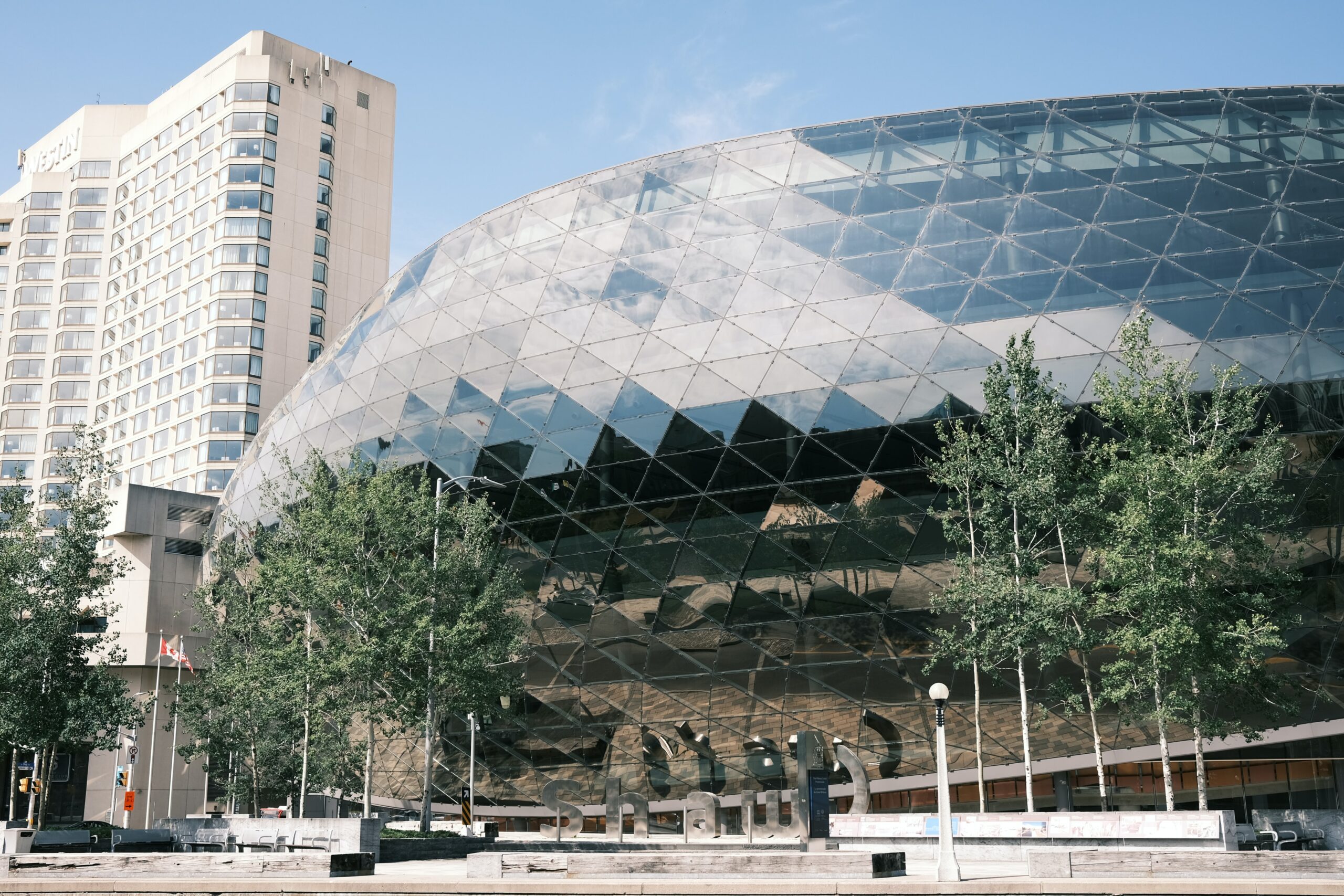By Taryn Blanchard
Every January, CERIC hosts Canada’s largest career development conference in Ottawa. Despite the cold winter (or maybe because of it), Cannexus is truly a sight to behold. Career practitioners of all stripes descend on the national capital for a half-week of knowledge sharing, networking, and inspiration overload. It gets loud and busy, and navigating the packed schedule takes a surprising amount of time and energy. (Luckily, there’s a slick mobile app for all your conference planning and connecting needs.)
This year, it just so happened that Cannexus20 would serve as my whirlwind introduction to the field of career development—and my new job.
I joined Challenge Factory as its new Research Coordinator less than a month ago. (Less than a month!) When I first met with Lisa—Challenge Factory’s founder and president—in December about the possibility of coming on board, it quickly became clear that career development isn’t only about jobs or labour markets or economies or statistics (although those are all important). Career development, at its core, is about humans and happiness.
With my background in anthropology and the human rights sector, human-based research is my bread-and-butter. So I was hooked right away, and spent my Christmas holiday crossing my fingers for good news.
In addition to getting that good news and starting at Challenge Factory come mid-January, I was even luckier to be invited to accompany Lisa to Cannexus20. It was an opportunity to get a crash course in career development and an ethnographic snapshot of its practitioners. (Anthropologist, remember? I got a Ph.D. by studying a professional community of practice, and here I found myself dropped in the middle of another—this one shiny and unfamiliar and rapidly professionalizing right before my eyes.)
So what did I learn? Two invigorating and inspiring themes sifted to the top of my Cannexus20 experience: community and storytelling. Let’s get into it.
The fictional divide between personal and professional
Community and storytelling play important roles in career development on (at least) two levels.
On the one hand, they affect the profession itself. A large part of Cannexus is about the work of defining and shaping the profession of career development into a cohesive community. The values that career practitioners share are made a priority, as is building productive relationships with one another. Out of these priorities come attempts to create unified and useful stories about the profession.
On the other hand, community and storytelling are also taken up as crucial elements of career development work. In session after session that I attended, Cannexus presenters and participants drew on them as tool, process, and goal.
Right out of the gate, keynote speaker Zita Cobb of the Shorefast Foundation opened the conference by explaining how today’s hyper-connected and competitive world is all about finding community and place. Culture and nature and value all reside in community, and career building—life itself, really—needs to rediscover its roots.
In a panel discussion about enhancing economic activity through public, private, and nonprofit collaboration, a group of career development leaders emphasized the need to rethink and re-envision sectors as community members. Big business and industry are now treated as activities that take place outside or above the community. This creates siloed and unaccountable systems, missed opportunities, and people left behind.
So how do we return to our roots, and reconnect industry with community? By telling human stories, of course, regardless of the type of data being used or the content being produced. If we collaborate as members of the same human community, a vibrant and viable world of work will take shape at both local and national levels.
Stories, then, are forces of opportunity and creativity. But there’s also a darker side to stories.
As Gray Poehnell—one of the field’s seminal career practitioners—showed in his session with Australian career education manager Leela Darwall, young people struggle with internalized stories of hopelessness, stress, and isolation. The pressure that students are under incubates their belief that they are never good enough, regardless of how accomplished and prepared they are for the world of work. Not surprisingly, these stories prevent them from finding rewarding careers and living their most authentic lives.
Helping young people, and anyone else struggling in their career journey, means changing these harmful internalized stories into ones of hope and possibility. It means facilitating ways for them to realign their own career goals with the things in life that make them happy. After all, career development is all about giving people back their control, as Professor Tristram Hooley pointed out during his keynote address.
The world of work is changing in ways that are both exciting and scary. “Career” is a loaded and lifelong endeavor, and it’s only getting more complicated. But if I learned anything at Cannexus20 and during my plunge into the field of career development, it’s that the cornerstones which make us human—like community and storytelling—offer all the pathways to success and fulfillment that we need.
I have a sneaking suspicion that I’ve barely scratched the surface of career development, but that’s quite okay. I’m looking forward to learning and growing here with the Challenge Factory team—and with the Challenge Factory community.

